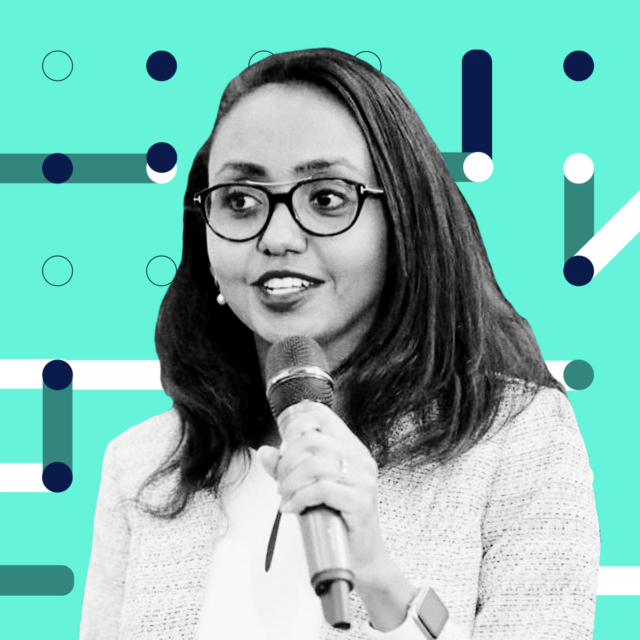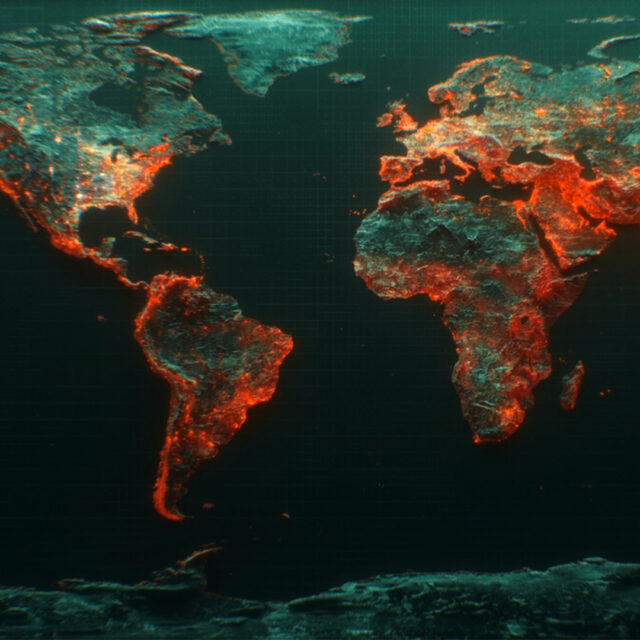Tsion Firew is a doctor of emergency medicine at Columbia University. We interviewed her as as part of our #PassTheMic series. Here’s some of what she had to say in the interview.
During my career I’ve focused a lot on global health work — from serving as a medic in Iraq during the war, to being on the front line in Mosul during the fight against ISIS.
When people talk to me about coronavirus and say: “This is like a battle zone,” I feel like saying: “Yes it is. So listen to the people who’ve actually been in the battle zone.”
Something that is really standing out to me at the moment is how uninformed the general public is about the racial disparity within healthcare.
Racial disparity in healthcare
Something that is really standing out to me at the moment is how uninformed the general public is about the racial disparity within healthcare. When the data was showing that more African Americans and Hispanics were dying from this disease, a lot of my colleagues and I were not surprised, because that’s what we see every day.
This pandemic has made it more pronounced, more visible for most of us. This is something that’s been here for a generation and will continue to be so.
When we talk about universal health coverage and what happens at the World Health Organization, we’re really trying to advocate for making health a human rights issue.
We can’t just tell people to go home and isolate when we know they live in multigenerational housing and that’s not possible. We’re seeing a pronounced awareness now of the racial and income disparity, even between generations of the same ethnicity.
I’m currently leading on a research program looking at outcomes in our emergency department. Is it because of just race or economic opportunities that we’re seeing this disparity?
How people can take action
It’s important to remember that it’s not just about one country doing well for itself. It’s about the whole world working together.
It’s not about power or GDP or having the best social network system. No one is immune. If we had coordinated together from the day the World Health Organization warned us about coronavirus, the world would be in a much better place.
So individualism and working unilaterally doesn’t work. It’s all about collaborative work.
What I’m really hoping is that this is a teaching moment for all of us about solidarity and sacrifice.
The second thing I would say to people is: “Do not forget about us” — “us” being healthcare professionals and essential workers.
I’m working on a project researching how US healthcare professionals are having a very difficult time at the moment. Essential workers are overwhelmed, without the right armour to protect them. We should be looking at how healthcare professionals are being treated and consider social support.
In the past few decades, we’ve seen a lack of respect and support for healthcare and essential workers, in terms of loans and wages. Thankfully doctors are usually well compensated, but I’m really thinking about the essential workers. Let’s not forget about those essential workers who cannot work from home.
We have to think about the most vulnerable. If you have the privilege of isolating and not having to worry about things like domestic violence or your income, then you’re very privileged.
Hopefully this has allowed people to reflect on the most vulnerable and what it means. Some people thought it was fun when they first got to stay at home, but that is not the case for everyone.
I’m really hoping that this pandemic will be a wake-up call for everyone — a reminder that none of us are immune, even the most powerful countries in the world.
What I’m really hoping is that this is a teaching moment for all of us about solidarity and sacrifice.
These excerpts from the interview were edited for length and clarity.
Hear more from experts in our #PassTheMic campaign, where global health experts take over celebrities’ social media channels to share the data, facts, and science we need to know to end COVID-19. Follow us on Instagram, Facebook, and Twitter for more.



